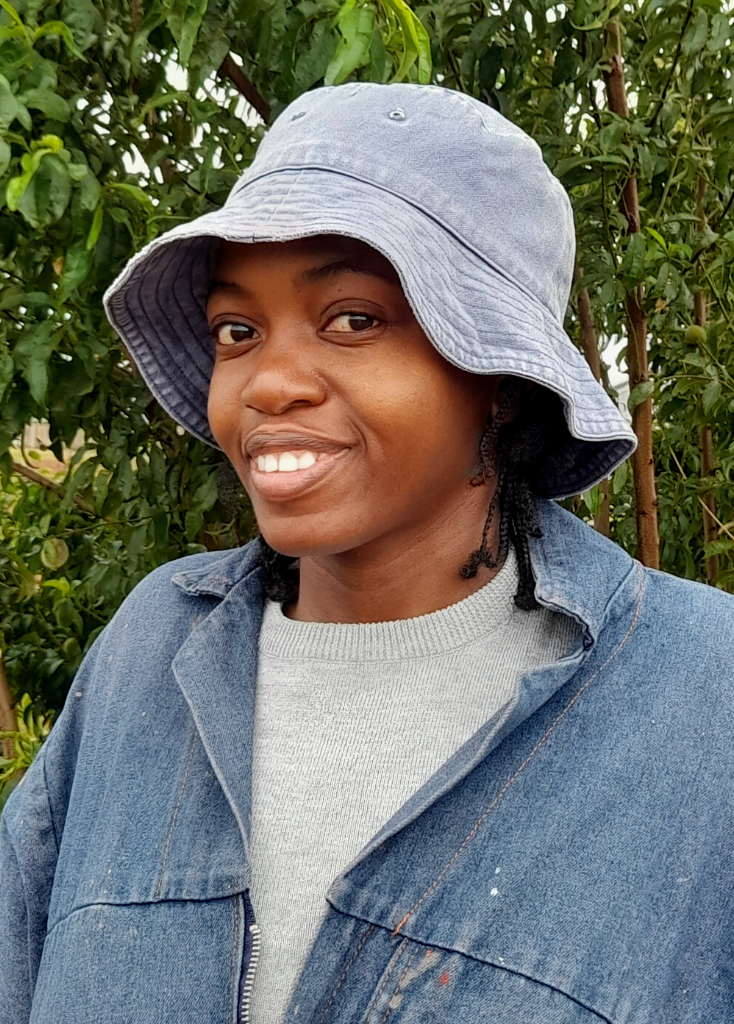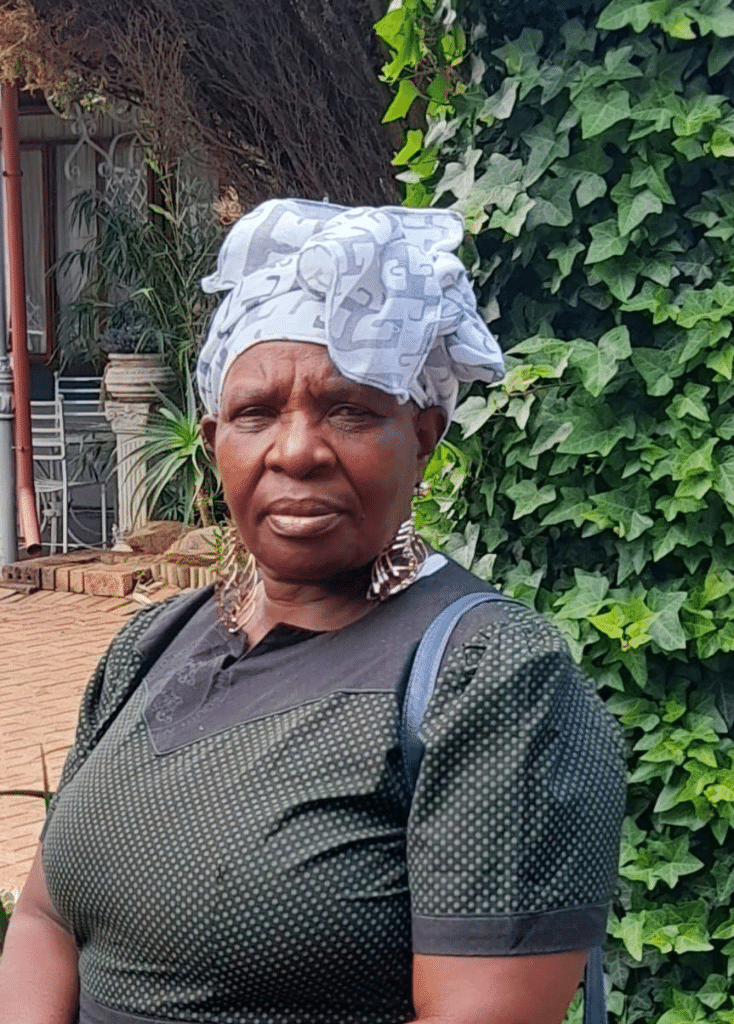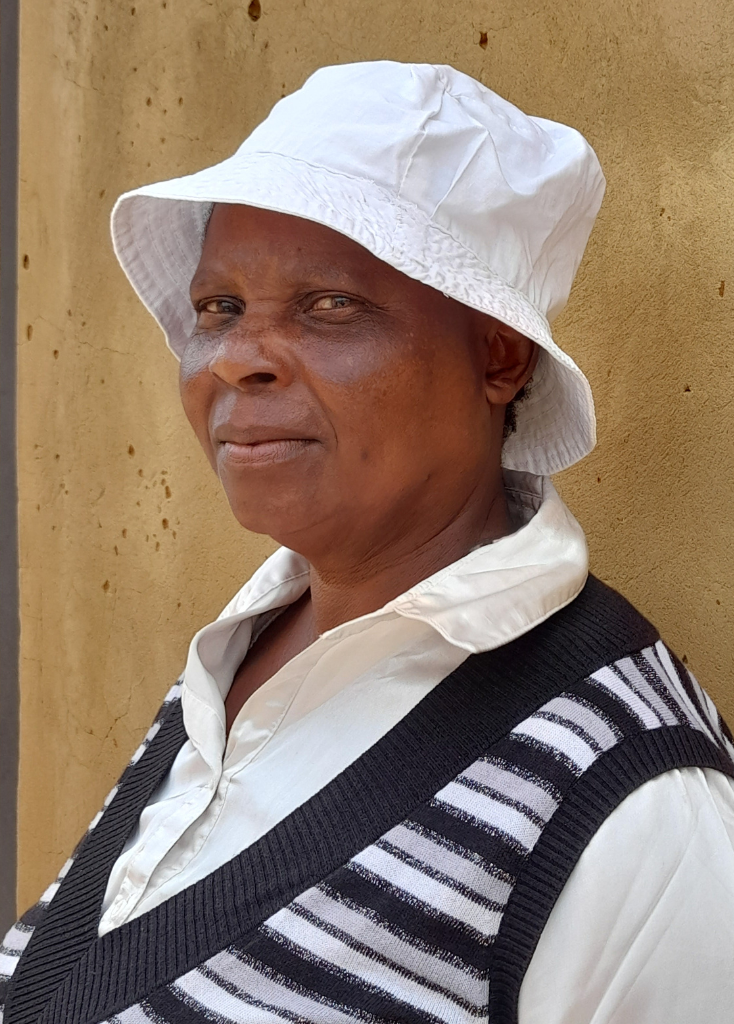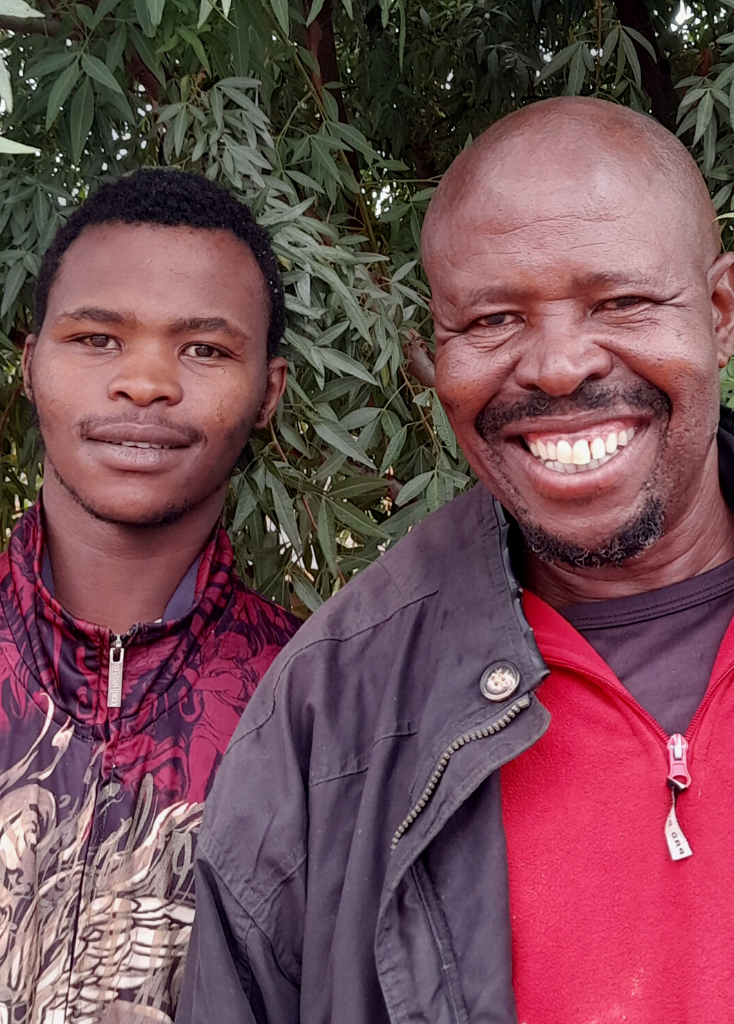
BBL PARTICIPANT: Fikile Ndlovu, Tsakane, Ekurhuleni, Gauteng
In a Nutshell
Through her participation in SocioTech’s Broad-Based Livelihoods (BBL) strategies to stimulate personal economic activity, Fikile Ndlovu has improved her soil and her crop yields. She has obtained business skills that she is using to develop innovative business strategies.
She says…
When people see me, a young woman, working on this land, dressed like this, they don’t understand why I do it. They don’t understand that farming is a business and that you can make money this way.
That attitude is so wrong. I have done other work – I used to work at the ambulance call centre – and this way of living and working is so much more profitable. It is also much more emotionally fulfilling.
Part of what I like about this way of living and working is that I feel part of a line of family stretching back across time. Farming is all about family traditions. We need to reach out and reclaim that heritage of African farming. Words like organic sometimes confuse people because customers don’t realise that this is the way that traditional farming has always worked.
My most immediate connection to that heritage is through my grandmother. I grew up with her in Pongola in KZN. As I work here, I often think of her. She had an amazing garden. Pongola is a wonderful part of the world for farming. The climate and the soils are so good. My grandmother also had a river at the back of her property, so water was never an issue.
My grandmother’s garden had everything. Mangos, pumpkins, guavas, they were all there. As kids, we were outside all day and I remember I ate those flavourful, firm, white sweet potatoes straight from the ground. I ate them raw – as if they were apples – that is how sweet and juicy they were.
When I came this side to stay with my parents I became quite cut off from that side of life. As I said, I worked at a call centre and it was all about modern rush, rush sort of city life but my dad has always wanted to farm and he eventually managed to secure a lease from the council for this land so I gave up my call centre job and came to work here with them.
Through SocioTech, I have done both the MyFood and the MyFuture training. Thanks to the MyFood training, we have managed to improve our soil. Our soil now is so good that it retains water and we don’t need to water every day. And it is so rich and nutritious that there is an obvious improvement in the quality of the vegetables we are producing. The problem with having great soil is that it is so good that the weeds are very happy too! Some of those – like thepe for instance – are edible and we can sell them but others are not. But because the soil is no longer so hard, even when we do need to pull up weeds it is much easier to do that than it used to be.
"Like I said, when people see a young woman in farm overalls, they don’t understand it, but I do, and that is all that matters."
And when we got the tunnels… that was a big break through. We have had this tunnel for about 3 months now and the difference is clear to see. Around here, cows, goats, birds, rats and rabbits do so much damage. Especially the rabbits – they are choosy, they always take the best crops. The sun is so strong. Even rain sometimes does damage. This tunnel has allowed the hard work my parents and I do here to show to its full extent.
I am not saying that everything is perfect. For instance we are still having some problems with worms and pests (and as I mentioned, some of the birds in this area are clever about getting into the tunnels) but I can see that we will reach a stage where we might have to split the business and have one section that is aimed at providing vegetables to local families and another section that has a single crop focus and sells to big business – for example maybe we could grow potatoes for McCain or something like that.
The MyFuture training was also very helpful. I have realised that we need to segment our market and understand what different types of customers want. The Zimbabwean customers for instance, they like peppery tasting leaves. They want chomolia and rape but they don’t like spinach. South Africans seem to like that smoother, gentler, less peppery taste of spinach. The Swazi and Mozambicans like okra. I have been talking to the Mozambicans and they say that their pumpkins are different to ours and that they miss those vegetables from home. I have asked them to bring me seeds and I am hoping that in the new year I can start growing to meet the needs of those customers.
It is not just about nationality. It is also about understanding what people of different ages want. For instance, young South African women buy okra from us, but they aren’t really cooking with it. They are buying it to make conditioner for their hair. That sticky, slimy liquid that comes out when you put okra into water makes a wonderful conditioner. I use it myself. It makes hair so strong, and it means that dreadlocks don’t break. I am thinking that there might be a business opportunity in growing okra for hair care. I am thinking that maybe I can dry the okra and bottle it so that I can sell all year round.
There are so many opportunities. Like I said, when people see a young woman in farm overalls, they don’t understand it, but I do, and that is all that matters.










